More than just stans: what sets Korean fandom culture apart
By Park Ye-eunPublished : Aug. 30, 2023 - 09:18
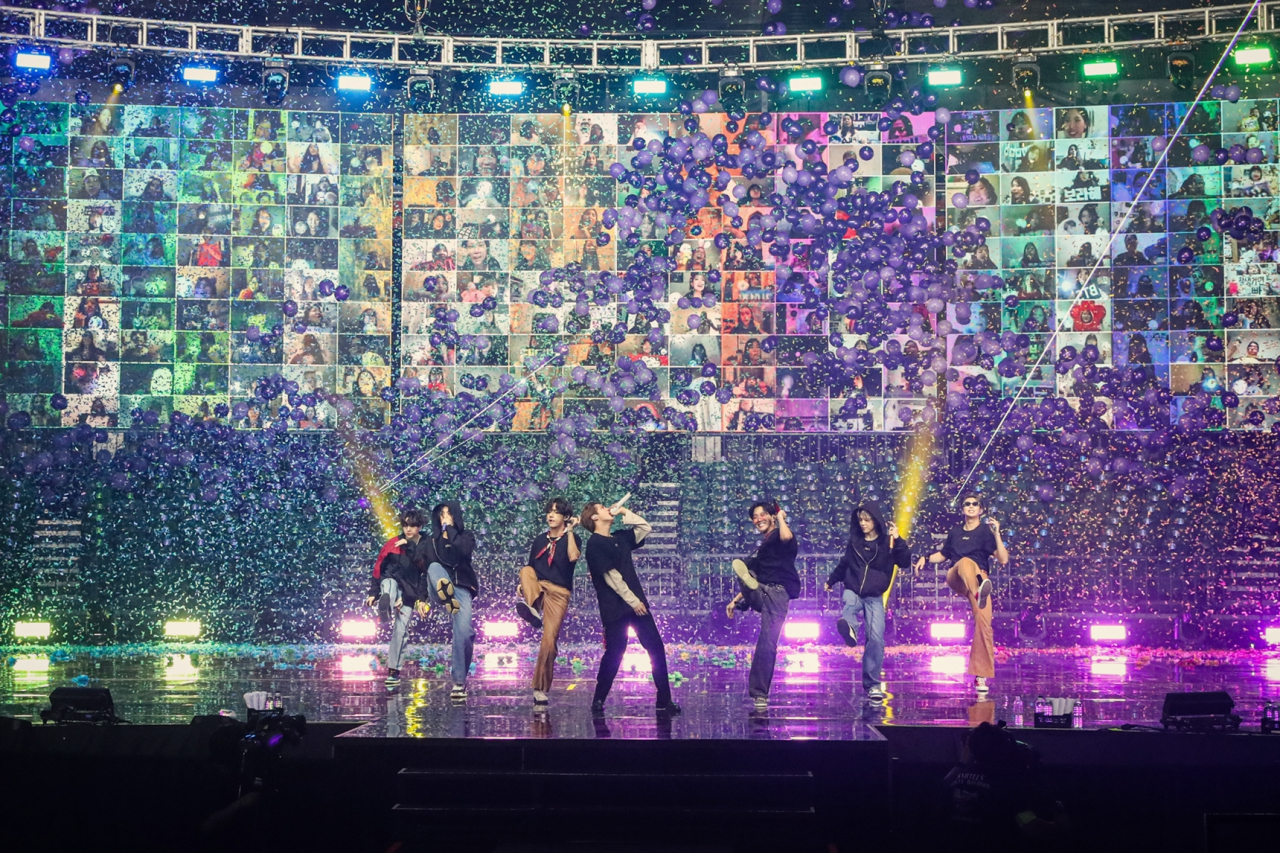
As K-pop’s global reach continues to expand, so has attention on K-pop fan culture.
It's common for fans around the world to devote their time and resources to their favorite celebrities, but Korean fans’ expression of their love stands out for the way in which it is more organized and systematic, and often based around communities.
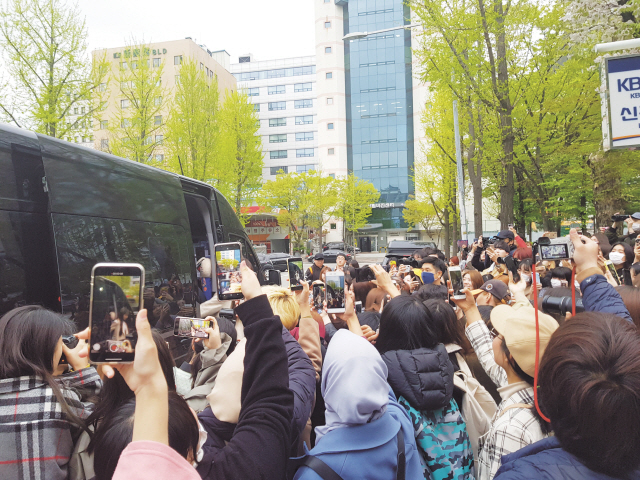
“On the way home”
One fan phenomenon is named after the Korean expression that literally means “the way home after work,” and it entails fans waiting to see their celebrities as they leave work, be it a concert or a television shoot.
This in itself is not unusual, but local fans -- and management companies -- have turned these things into organized events.
It works as a system in which agencies and fan clubs share dates and times, and related information is notified to fans in advance on online platforms. This system allows larger numbers of fans to gather, requiring certain controls due to packed people.
In this way, the “On the way home” culture has given rise to events where fans and celebrities meet in unofficial, yet still highly organized, ways.
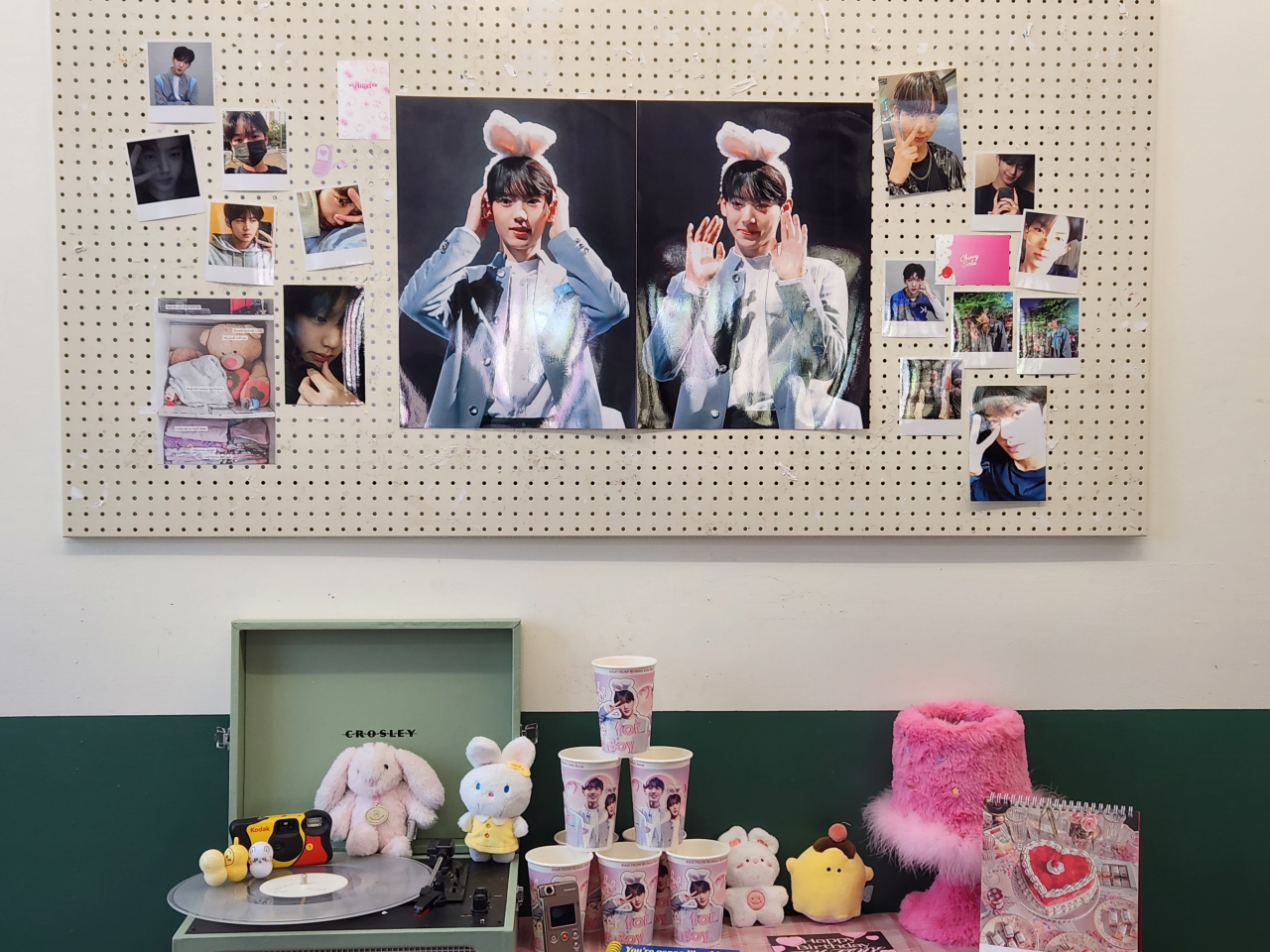
Birthday cafes
A birthday cafe is another Korean fandom phenomenon where fans rent a cafe to celebrate their favorite celebrity’s birthday. They decorate the "fan cafes" with photos and other items related to their celebrity and the cafes offer special menus named after the celebrity, and other items such as cup sleeves with the celebrity’s face printed on them.
Fan cafes double up as pop-up stores, with merchandize ranging from specially designed stickers and dolls to key rings and cardboard cutouts. Since the merchandize can differ from one fan cafe to another even for the same star’s birthday, fans often go on tours of fan cafes.
For fans living in rural areas, it can be difficult to tour all birthday cafes, which are usually in Seoul. But many celebrate their idol's birthday in their own way, such as by ordering a customized cake made of star’s representative color and sharing it on social media.
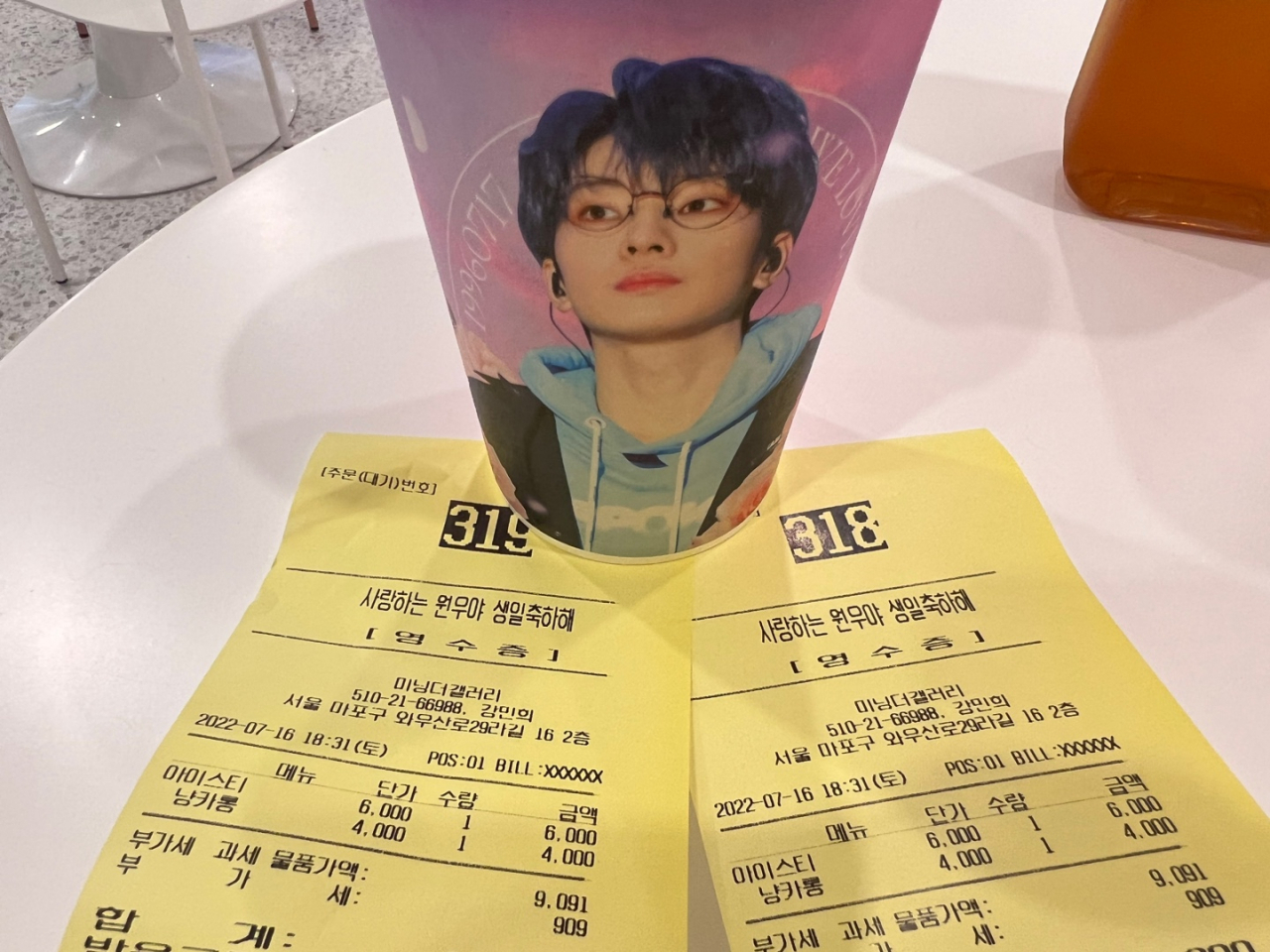
What motivates the fans?
The extraordinary measures some fans go to show their love for their idols may not necessarily be reciprocated or even recognized. However, fans and experts say that it’s not recognition but the sense of community and a feeling of celebration that drives them.
Jeong Da-um, a 22-year-old university graduate who is a fan of NCT, says that fans will wait as long as six hours to catch a glimpse of the celebrity getting into a car, or lower the car windows for greetings. And the long-awaited interaction with the star will range from a few seconds to minutes.
“There is no expectation that the idol will come, but I get a greater sense of celebration by visiting (fan cafes). Although I know that the idols are strangers, it doesn’t feel that way because I like them. As I receive positive energy from them, I root for their success,” Jeong said.
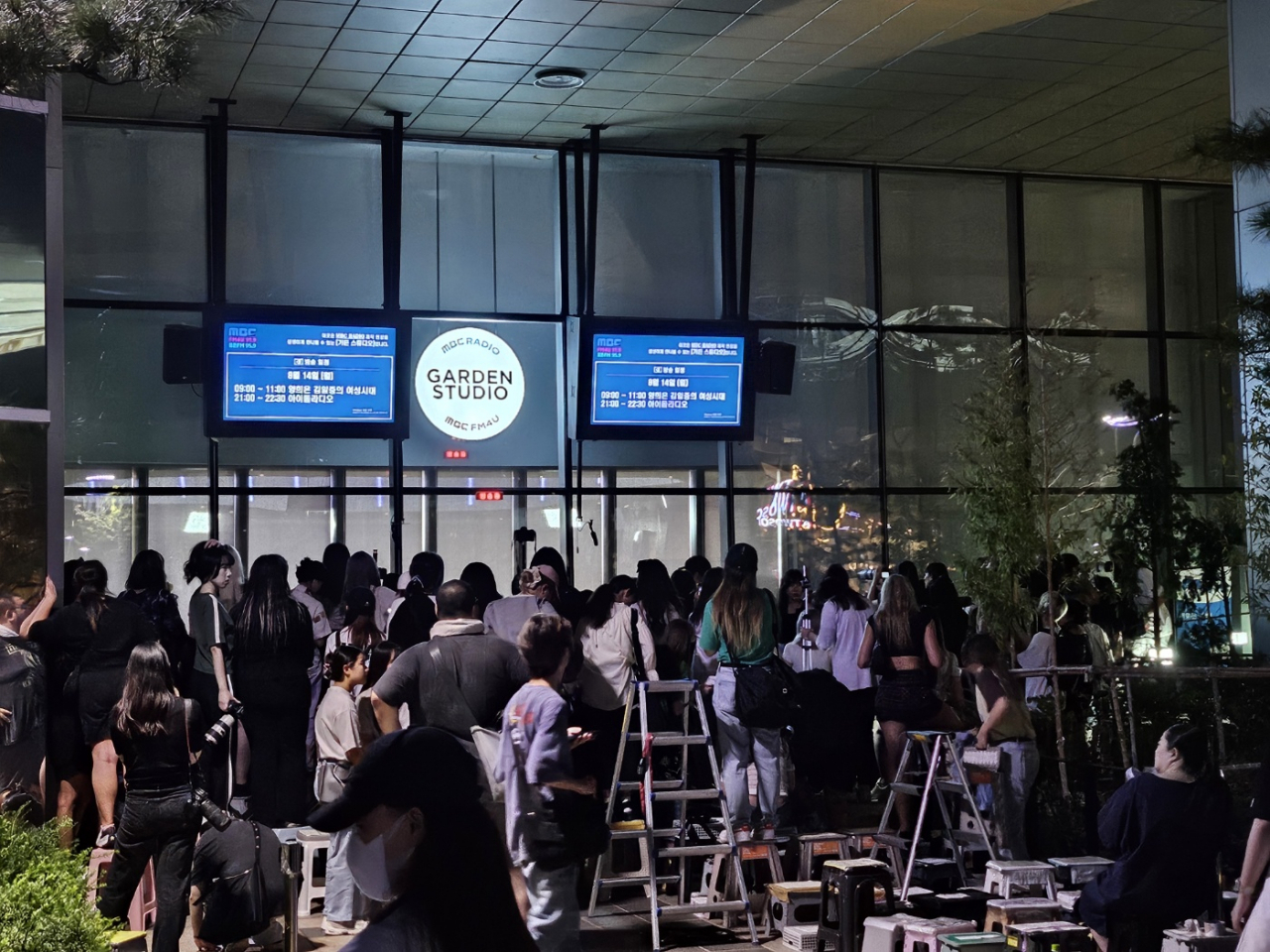
Korean fandom culture can also be found overseas, but it is the result of a special tendency shared by Koreans, says Han Min, a former professor of cultural psychology at Korea University.
According to Han, Korean idols are different in that they communicate with their fans a lot more than foreign stars.
He says this stems from Korean stars being closer to their fans, which itself is based on Koreans’ cultural perceptions toward interpersonal relationships. Koreans tend to feel close to others subjectively, he said, meaning that some kind of reciprocation is needed for fans to feel close to stars.
“Korea’s fandom culture is related to the concept of ‘us,’ (when fans) develop love (for a celebrity) they sense narrowing of gap between each other, and from a close psychological relationship. In other words, once this sense of bond is established, the mind works as if the person (the celebrity) is no longer a stranger,” Han said.
“The sense of mutual bond forms because the idols feel grateful to see fans who are waiting for them, and fans sympathize with their celebrities’ attitude as well. This is the process of strengthening the relationship,” he said, citing instances of celebrities sending gifts to longtime fans on special occasions such as fans’ weddings.
He said that Korean fandoms are led by the bond created through the need for such reciprocated expressions of affection.








![[KH Explains] No more 'Michael' at Kakao Games](http://res.heraldm.com/phpwas/restmb_idxmake.php?idx=644&simg=/content/image/2024/04/28/20240428050183_0.jpg&u=20240428180321)


![[Weekender] How DDP emerged as an icon of Seoul](http://res.heraldm.com/phpwas/restmb_idxmake.php?idx=644&simg=/content/image/2024/04/25/20240425050915_0.jpg&u=)



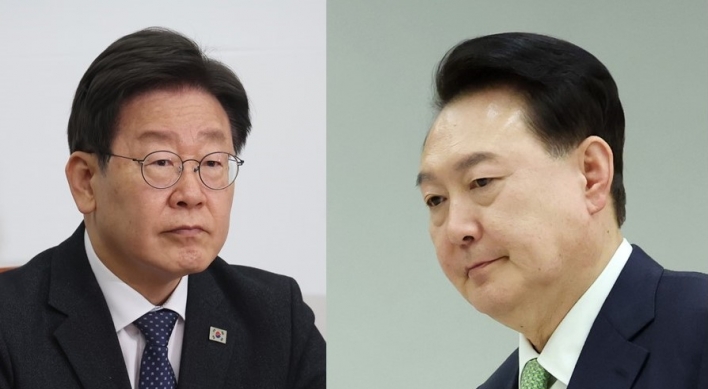



![[Herald Interview] Mistakes turn into blessings in street performance, director says](http://res.heraldm.com/phpwas/restmb_idxmake.php?idx=652&simg=/content/image/2024/04/28/20240428050150_0.jpg&u=20240428174656)
